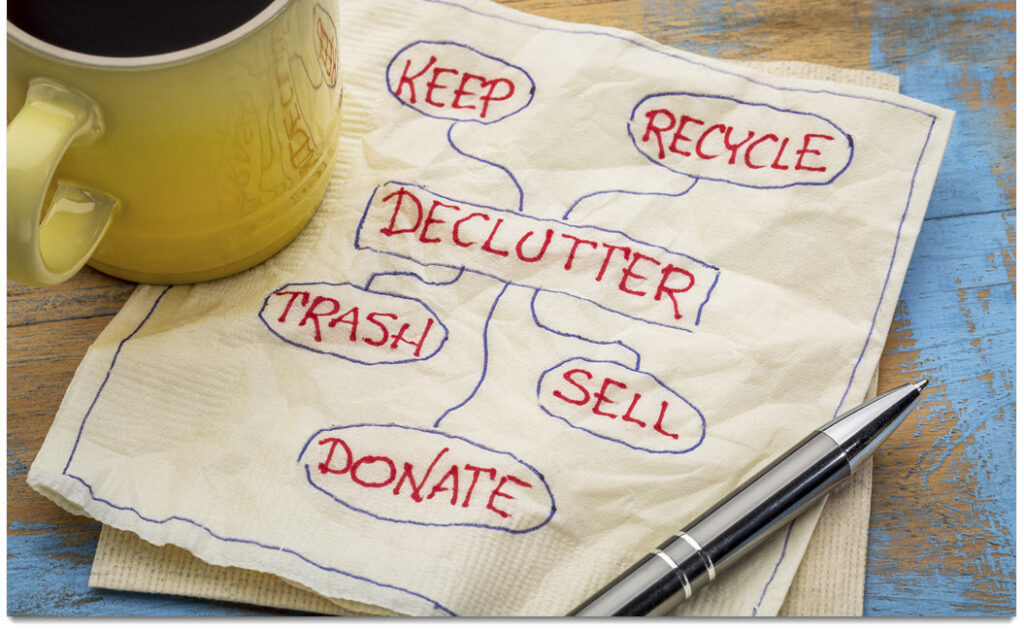Finding Balance When You’re Stressed and Busy

You budget and care for how you spend your money. It is equally important to care for your time as well.
This may seem like a no-brainer, but many of us still have trouble saying “no” when someone asks us to commit our time to a worthy cause.
All these worthy commitments can add up to a lack of balance and excessive stress for you. It may be challenging to say no to commitments that benefit others, that speak to our ideals, or that may get us ahead in other areas. Indeed, those are commitments we should say yes to, but too many of these can cause an excess of stress.
The following tips are strategies that you can use to find balance, pare down your schedule, and relieve daily stress.
Declutter Your Life
Decluttering has some very definite benefits. First off, your environment will be cleaner. A cleaner environment prevents pests from wanting to share your space with you. If your space is cleaner, this will help reduce dust, mold, and mildew. Too much dust, mold spores, and particles in the air you breath can trigger asthma and allergies.
Decluttering will lead to an improved lifestyle and a sense of well-being. It’s easier to prepare healthy meals in an orderly kitchen. Also, most people sleep better in a neat room with a tidy bed.
Tips for Decluttering Your Spaces
You’ll enjoy the mental health benefits of decluttering more if you make the process low-stress.
Start small. If you pick one drawer or cabinet to organize, you’ll be less likely to get discouraged. The pleasure of seeing and using a well-organized space will serve as positive feedback, prompting you to do more.
Don’t strive for perfection. There’s no need to hide items that you use a lot. Also, try not to judge your spaces against those of other people.
Collecting clutter is associated with a certain mindset.
Characteristics of Clutterers
People who have trouble with clutter often:
- Struggle with time management and stop tasks before finishing
- Have perfectionist tendencies and trouble stopping and starting projects
- Are easily sidetracked, such as those with attention deficits
- Are “people persons” who spend a lot of time doing things with and for others
- Make a habit of putting things off, also known as procrastination
Remember That A “NO” Also Means A “Yes”
Usually, when we’re presented with requests on our time, we think about whether we can fit this new activity into our already-packed schedule and whether or not it’s worth it. This often leads to an even more packed schedule. When deciding what to say yes and no to, we find it extremely helpful to remember that every ‘no’ is a ‘yes’ to something else and vice versa.
Learn To Delegate
Never underestimate the importance of delegating effectively. How well you delegate is directly reflected in how empowered the people around you feel. Delegate properly and enable people (and, of course, children) to learn new skills and strengthen the skills they already have. To delegate helps people improve their decision-making abilities and, ultimately, their productivity.
Coordination, communication, and plentiful trust are the keys to effective delegation. The result is a win for everyone. The first rule in effective delegation is finding someone with all the prerequisites. These include strong collaboration, an appropriate level of authority, and reliability.
To start selecting who to delegate, first make a list of tasks you wish to delegate. Then, gather people who you think can take on one or some of these tasks. Show them the list. Let people select tasks themselves based on their strengths and interests. This is a great way to demonstrate trust and inspire action within the group/team.
Do a Good Job
Everything does not need perfection. Live by the 80-20 rule, where you identify the 20% of work that yields 80% of the results, and focus mainly on what’s important, letting the rest slip if necessary. Remember, sometimes focusing on perfection isn’t as important as focusing on speed, especially when looking for balance in your schedule.
Live In The Now With The Future In Mind
Here is a beautiful example. When choosing whether to exercise or watch television, thinking about the long-term benefits of each makes it much easier to skip a moderately entertaining show in favor of getting moving. Both activities can relieve stress, but one contributes to an overall plan for better health, while the other doesn’t.
Stay Organized
A good plan and a clear budget for your time are invaluable in maintaining balance in your life. Being organized is vital to finding balance in life. If you have a schedule where everything fits, you’ll be more efficient with your time.
Add In Some Fun
It is essential to get your errands done. You may need to do laundry, wash the dishes and pack lunches for the next day. However, it can be helpful to include fun things in your life and not load up your day with stressful things.
Give us a call at 802-295-6065 if you live in the Upper Valley and need extra support for keeping your home clean and tidy. We can help you to reduce the stress in your life. We have been providing homeowners of the Upper Valley with top-notch home cleaning services since 1993.

